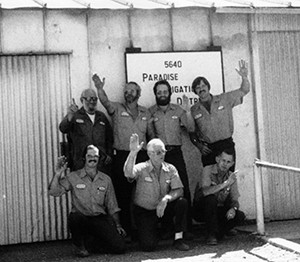In the 1960s, farmers in California ran irrigation districts like their own personal fiefdoms. The status of irrigation workers under state and federal labor laws was unclear. The IBEW International office had no interest in organizing them, but Ron Weakley didn’t give up so easily.
He began by offering assistance to workers at Nevada Irrigation District, operating in California’s Placer and Nevada counties. Without recognizing IBEW 1245’s right to bargain for the workers, the District’s Board of Directors nevertheless acted on several of the union’s proposals, including more vacation and sick leave, a grievance procedure, and wage increases ranging from 5 to 10%.
Although Section 3502 of California’s government code gave public employees the right to form, join and participate in the activities of employee organizations, it didn’t explicitly grant bargaining rights. Still, in March of 1965, IBEW 1245 managed to persuade the Board of Directors at the Oroville-Wyandotte Irrigation District to formally recognize the union. The Board granted wage increases and agreed to put in writing all existing working conditions and benefits.
Also in 1965, PG&E lineman (and future business manager) Jack McNally helped ditch tenders at Merced Irrigation District organize. When the District manager refused to bargain, the union helped elect two labor-friendly candidates to the District’s board of directors, which led to an agreement.
Other irrigation districts organized by IBEW 1245 through the years have included Richvale, Lindmore, Modesto, Paradise, South San Joaquin, Turlock, Glenn-Colusa, Fresno, Oakdale, Thermalito, Orange Cove, and Tri-Dam, a joint development of the Oakdale and South San Joaquin Irrigation Districts.
